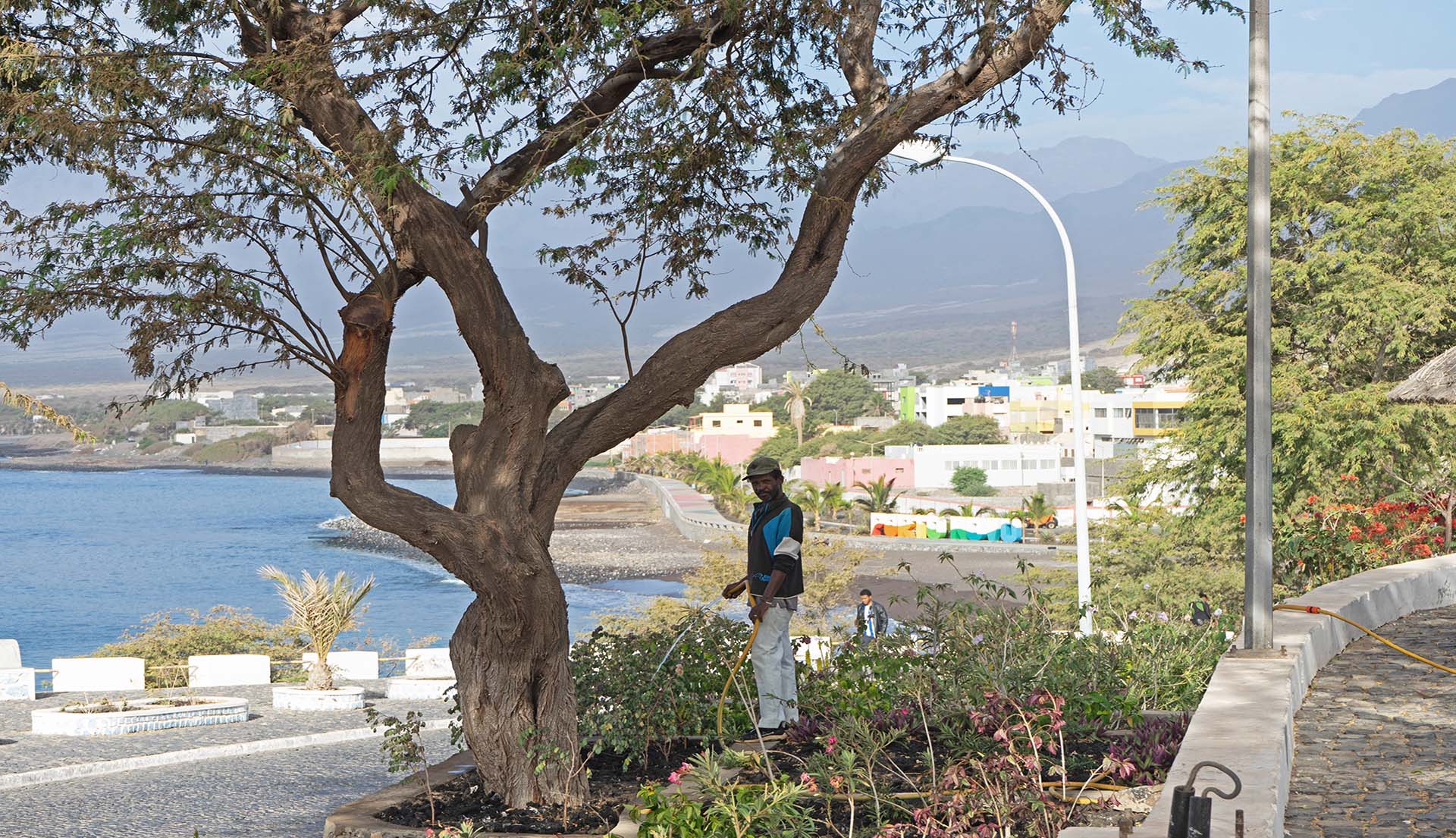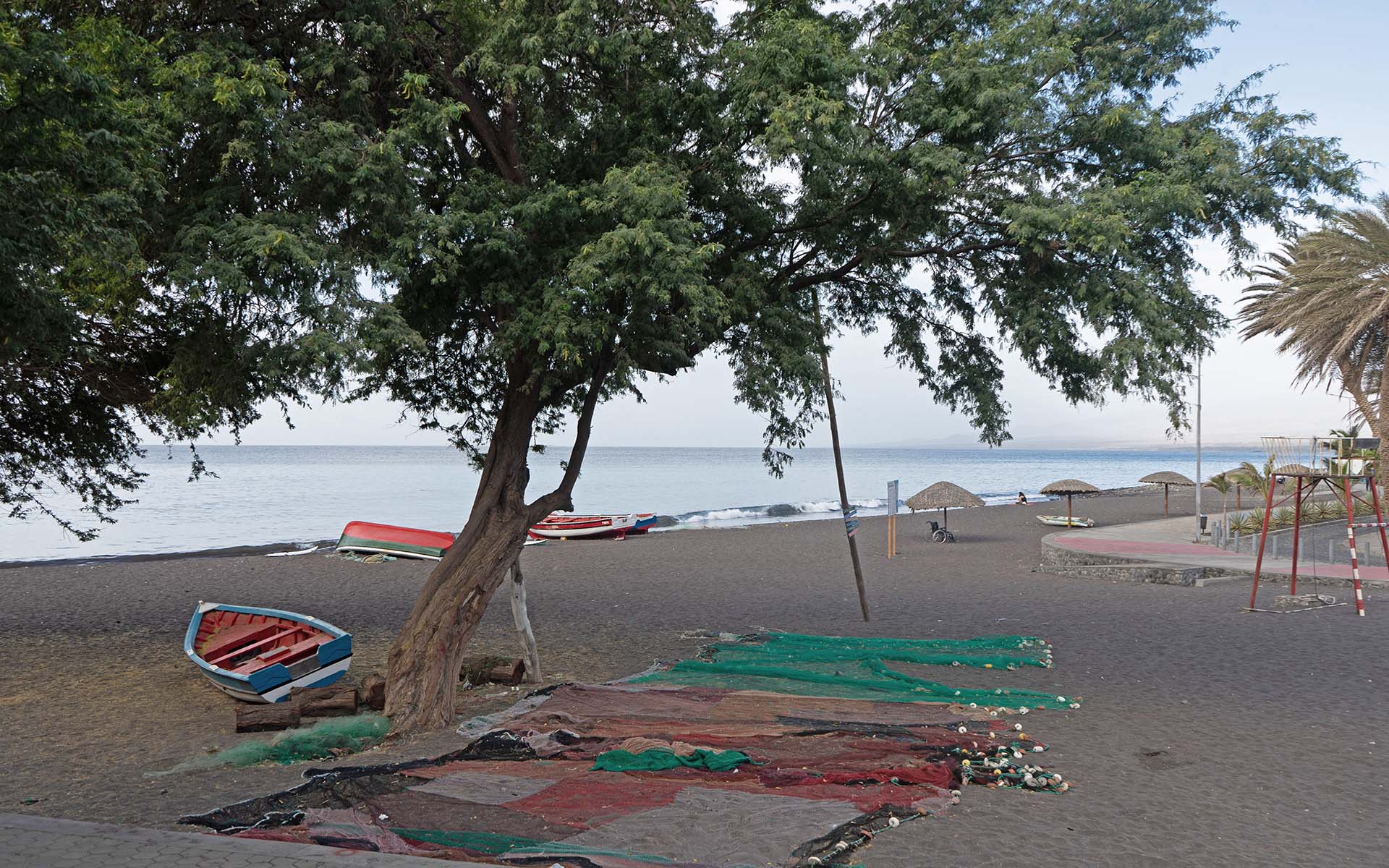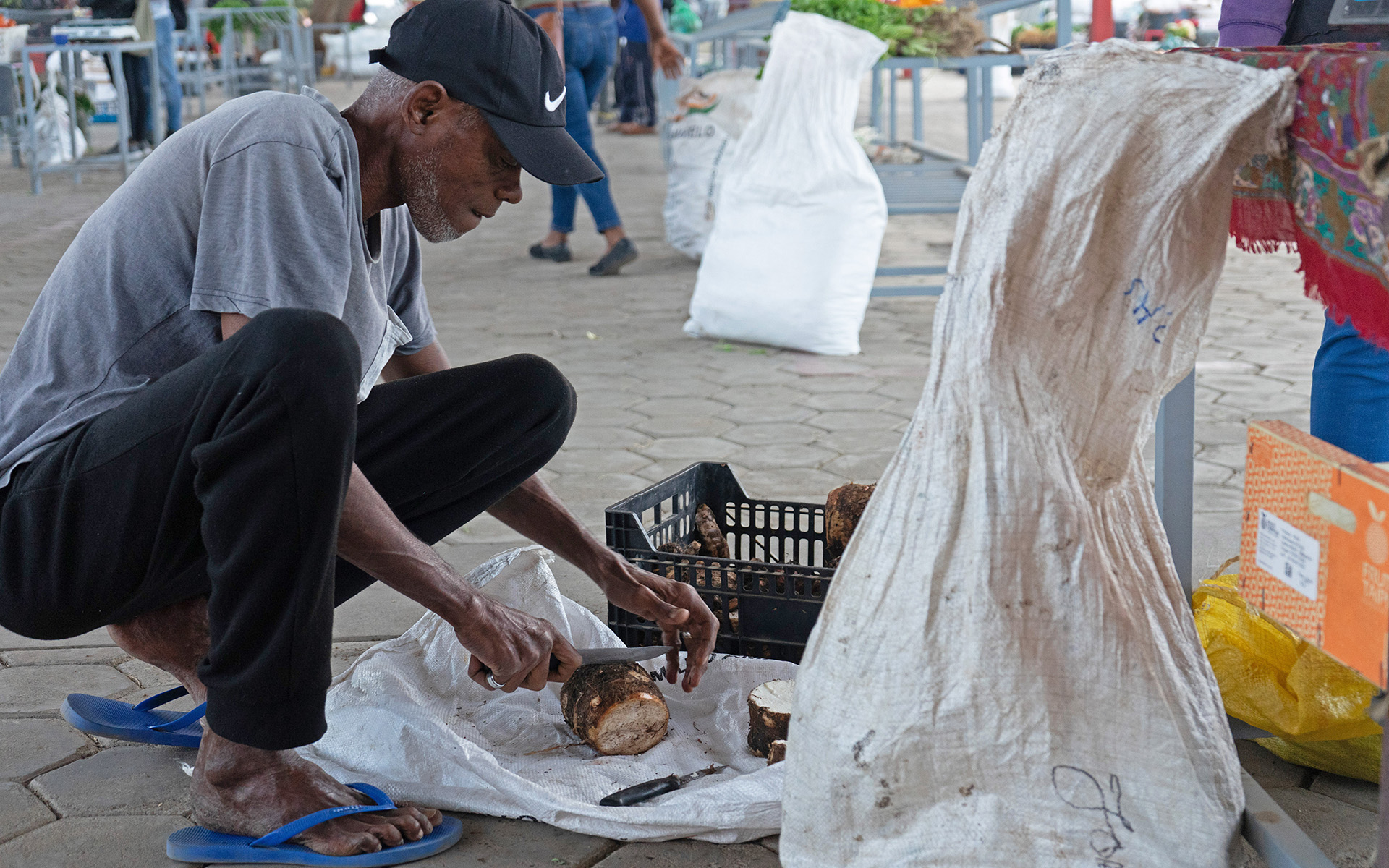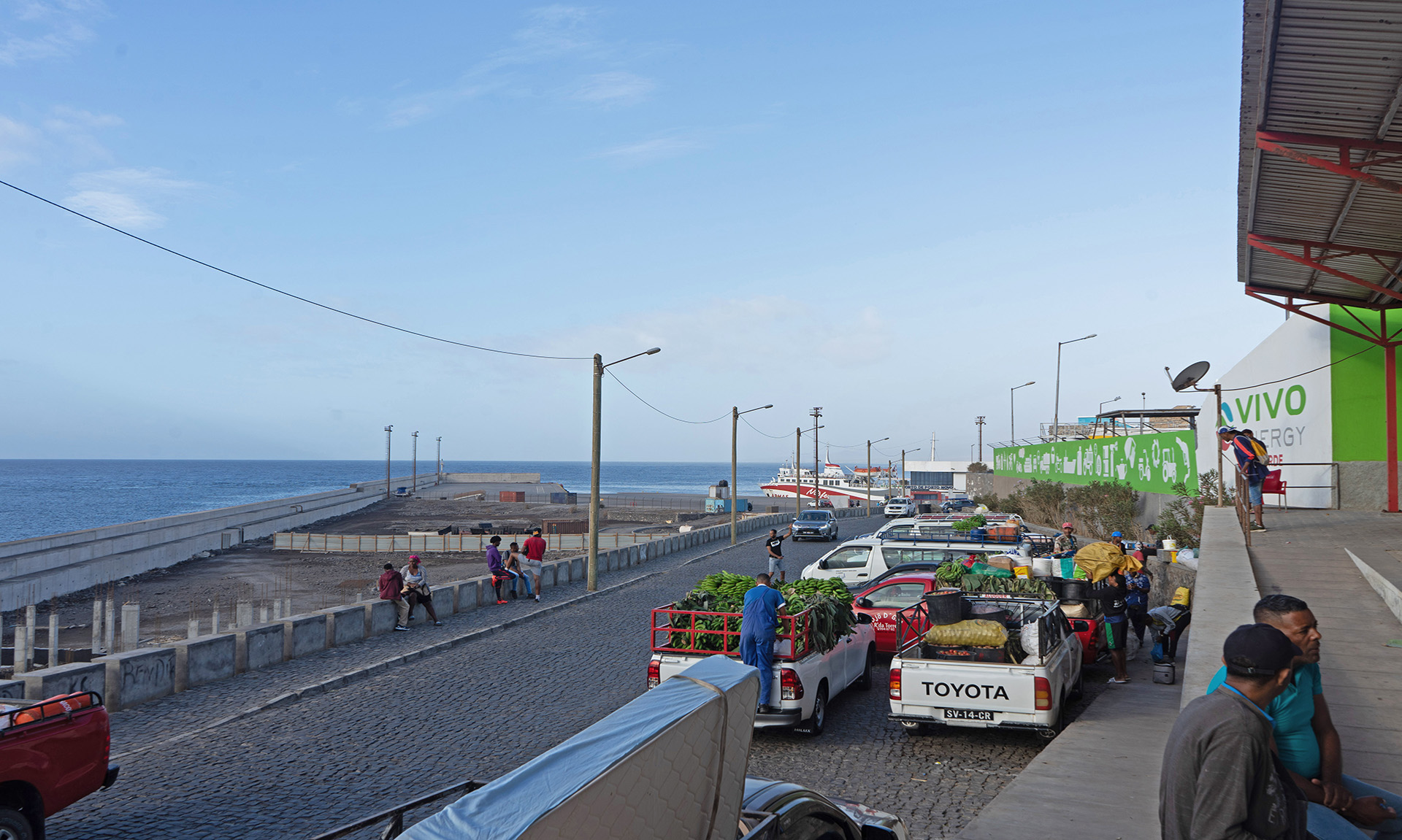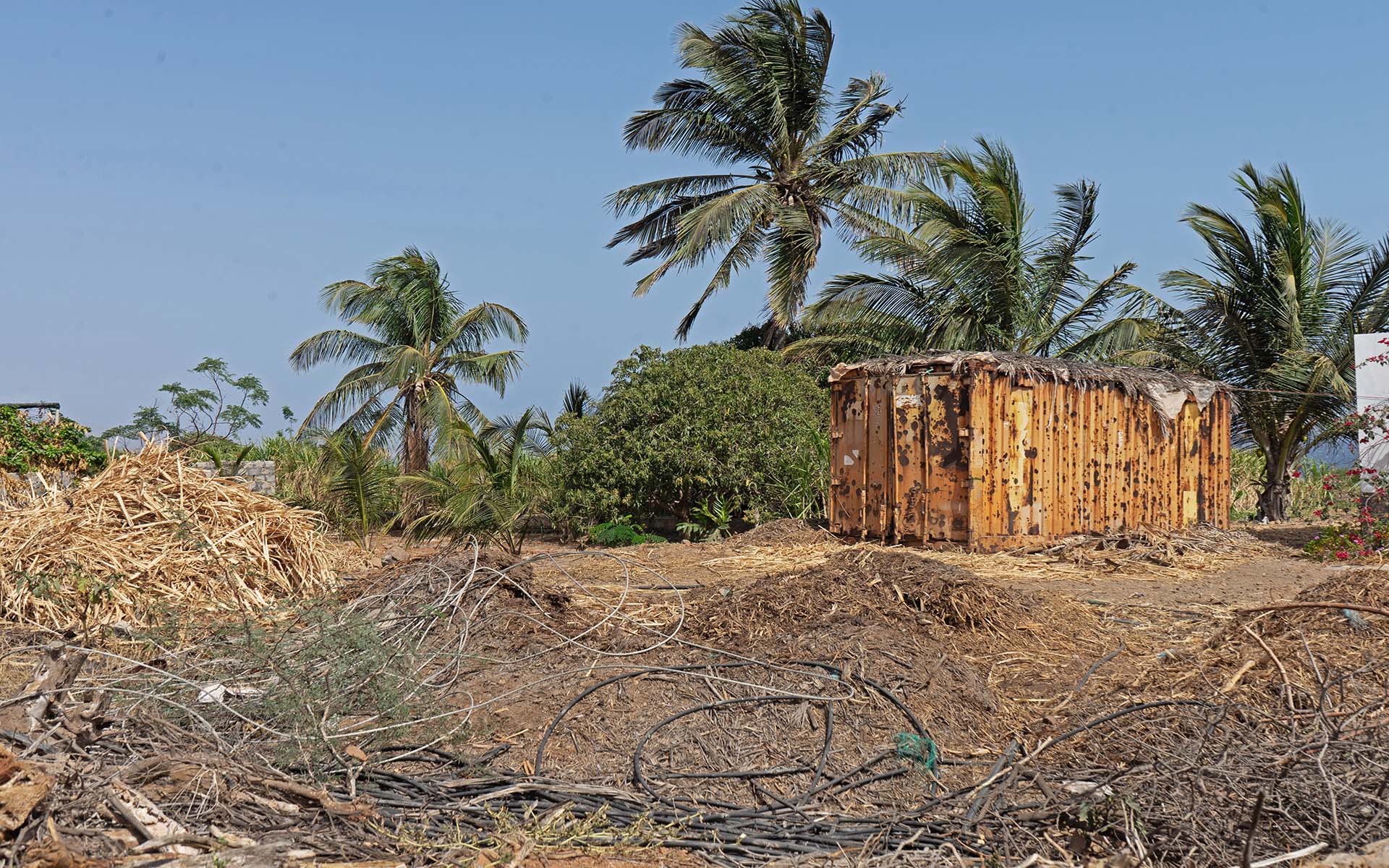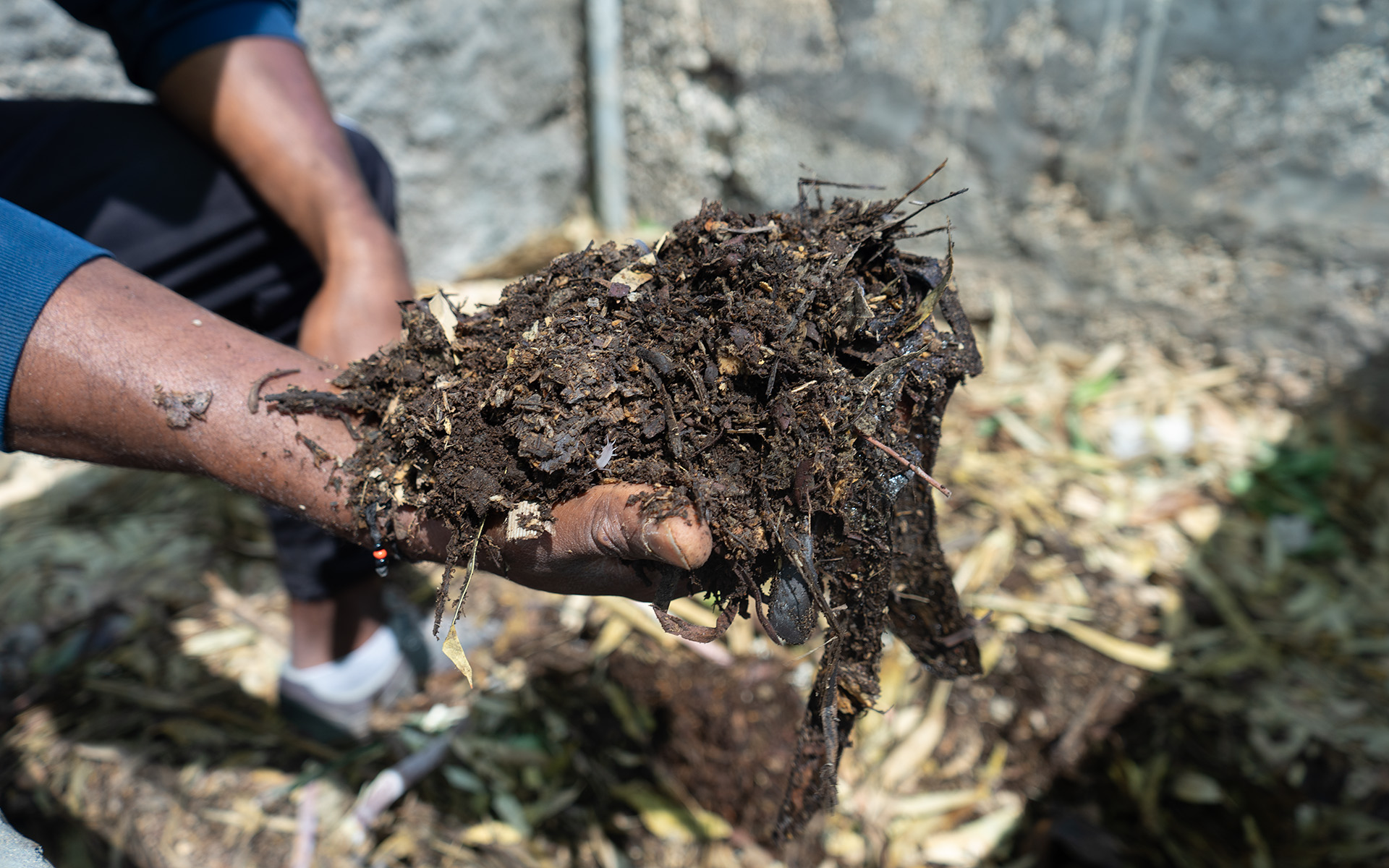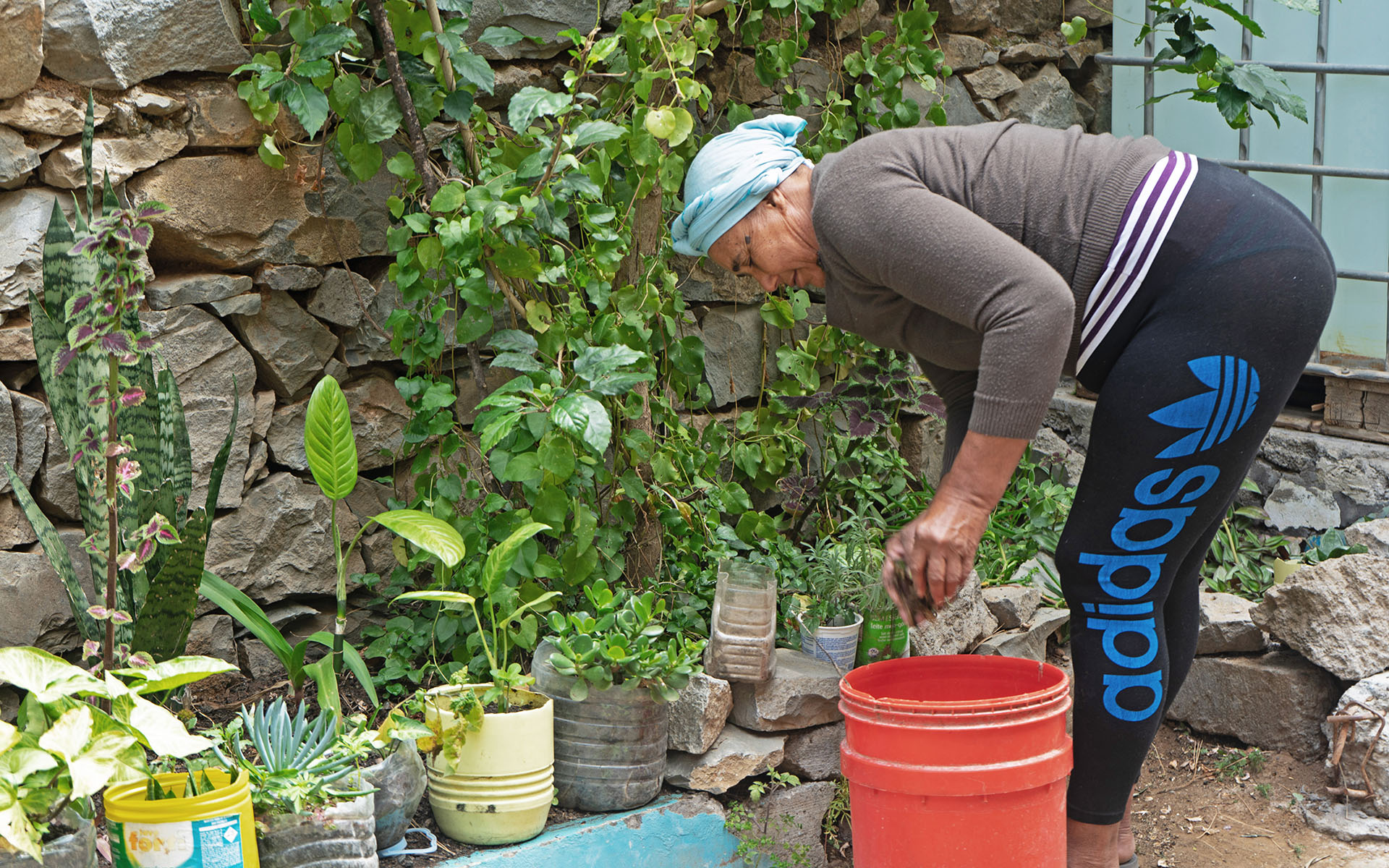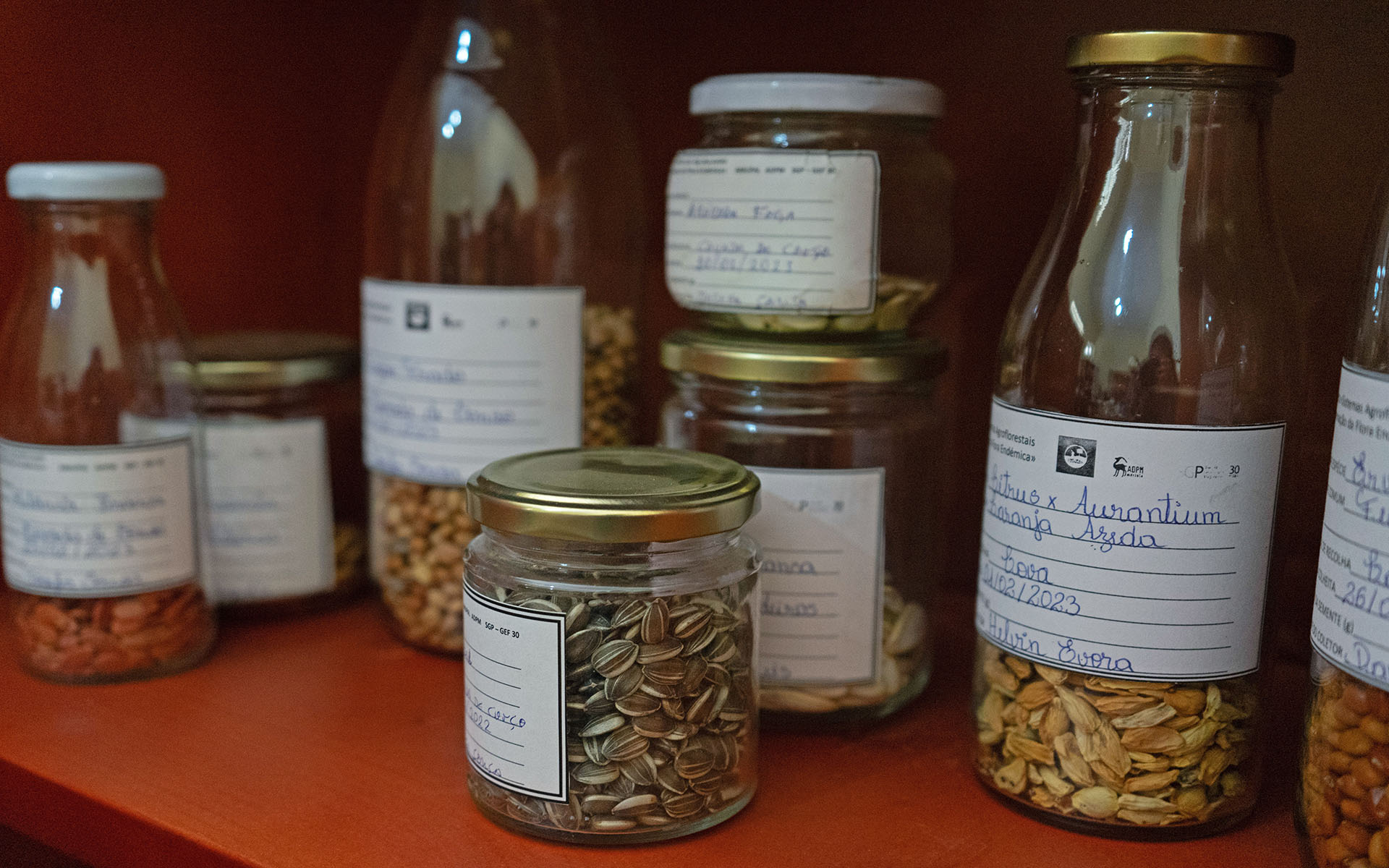Farmers find in tradition solutions to drought and lack of rain.
Santo Antão is known in Cape Verde as the island of the mountains. It is the second largest island in the archipelago in surface area and the third in population. It is also the northernmost and westernmost island, and is therefore the westernmost point of the African continent. From the desert climate in Porto Novo, the island’s largest city, to the humid terraces on the slopes of its steep Tope de Coroa, the country’s tallest mountain (1,979m), and the stunning Ribeiras, or river valleys, Santo Antão is a territory full of contrasts where the common ground is a lack of water.
REVOLVE visited the volcanic island, where several agroecological experimental fields have been running for some years. Their goal is to test and replicate an agricultural system that works with, not against, nature, by looking back to traditional techniques that combine trees, crops and animals, coupled with soil management principles and social practices. Ultimately, these agroecological practices will contribute to mitigating the effects of climate change and creating more resilient and independent food systems.

